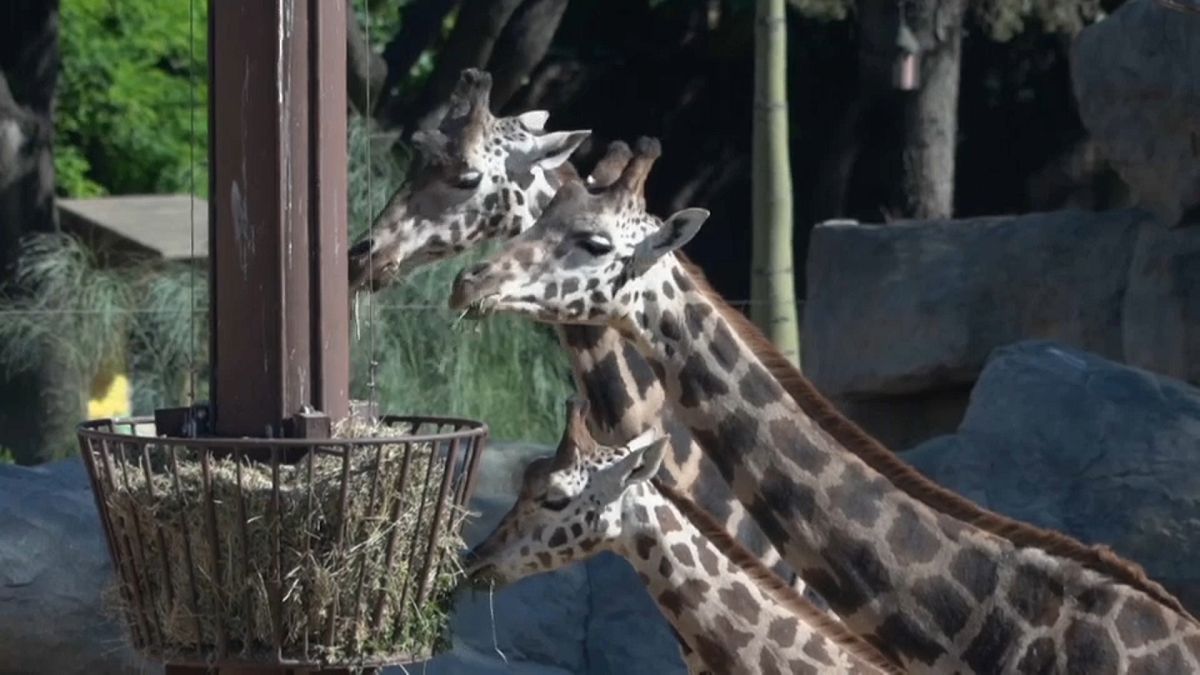The city council voted to modify bylaws, saying breeding will eventually be halted if they are not adhered to. Animal rights activists celebrated but some zookeepers are worried restrictions could do more harm than good.
Barcelona Zoo has been ordered to restrict the breeding of animals unless the offspring are reintroduced into the wild.
The city council voted earlier this month to modify bylaws, saying breeding will eventually be halted if they are not adhered to.
The rule states that any of the zoo's breeding programmes will be eliminated unless they include in a plan to eventually release the offspring into the wild at some point.
The mandate was passed along with a new strategic plan for the zoo crafted by its staff that will task a committee of scientists and ethical experts with one year to determine a conservation plan for each of the 300 different species housed at the zoo. It was pushed forward by the animal rights group ZOO XXI.
Those resulting plans will have to be implemented within three years. Any animals the committee thinks should leave the zoo will, in theory, be reintroduced into the wild or relocated at other zoos or sanctuaries.
The bylaw says it is adopting a stance of "compassionate conservation" that sees "animals are beings deserving our respect".
"We want zoos to stop reproducing animals that do not respond to an environmental strategy, reproducing them just so they can be in front or inside a cage. We only like reproduction of animals if the offspring will be reintroduced to the wild," says Leonardo Anselmi who coordinates ZOO XXI.
But while animal rights activists celebrated, some zookeepers are worried restrictions could do more harm than good and held a strike early this month to voice their concerns.
Damia Gibernet, the head of the local zookeeper's union, led the strike. He said: "The problem, as always, is not the philosophy of deeper and more sincere animal welfare, which we agree on, but how to apply it.
"For some, it has to be a sudden transformation which is very traumatic and which we opposed because we believe that this transformation should be done... in line with the animal's timing, not the person's [timing]."
The zookeepers argue that responsibly reproducing animals in captivity is key to maintaining a healthy genetic pool of several species that are endangered. They point to a recent United Nations report that found that more than one million species face extinction.
Founded in 1892, Barcelona Zoo is one of the oldest in the world, and now has a focus on breeding, conservation and research – as well as offering visitors the chance to see its animals.
The World Association of Zoos and Aquariums says that more than 85% of the species housed at Barcelona Zoo are included in the IUCN Red List of Threatened Species, and over the last few years, nearly 30% of the animals born in the zoo were released into wild habitats.
Gibernet says the zoo had already stopped the reproduction of certain animals such as elephants and rhinoceroses. Other species such as lions, giraffes, and great apes were being bred in captivity up until now.
But less than a dozen animals are part of conservation programmes that eventually lead to repopulation in the wild, although zookeepers say this is not as simple as it sounds.
"The reproduction limitation in some cases for us is very serious because it avoids the reproduction of species that are at great risk of extinction and we cannot allow them to disappear," says Gibernet.
Both sides of the debate recognise it will take years, even decades, to see visible change, while admitting this may be the last generation of lions, giraffes and many other species at the Barcelona Zoo, and certainly the last dolphins.
